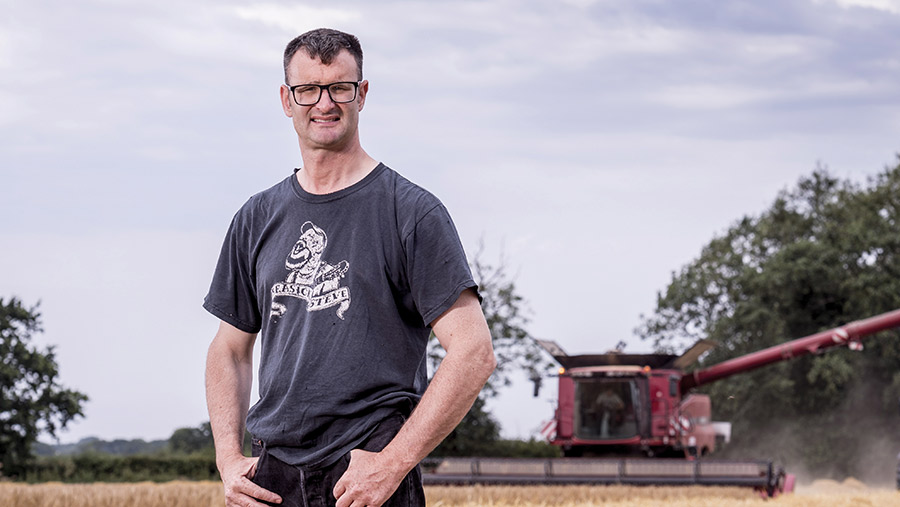Farmer Focus: Ukraine conflict highlights food security
 Doug Dear © Jim Varney
Doug Dear © Jim Varney As I sit down to write this, Russian armour is rolling across Ukraine. Vladimir Putin is expediting his 10-year plan with impeccable timing, seizing the moment when Western politics are at their weakest, with desultory leaders and policies.
Have we the backbone or inclination to help the Ukrainians directly with the alliance of Nato?
Nato is undersupported and underfunded by various member states, and there seems to be an assumption that the UK, US, and Poland will come to bear arms for the other member states.
See also: WIYLS visits a beef shed built for low effort and high welfare
Let’s not be completely naïve, and hope everything is going to be alright, because it clearly isn’t. We must at all costs concentrate on the home front.
Whether we go down the route of “guns versus butter” – in other words, defence versus social programmes (search for it online if you wish) – or not, self-sufficiency in food and energy must take the highest priority.
We cannot put ourselves in the position where liberal Western democracies are totally reliant on Chinese solar panels and Russian gas.
Gone are the days with this new world order when we could rely on others for the basic needs of this country.
It’s time to wake up, and not kid ourselves that we are immune to attack. Modern warfare takes on many guises and using a cyber attack to cripple our supply chains is the modern equivalent of the Battle of the Atlantic.
Net-zero, Environmental Land Management schemes and rewilding might just all have to take a back seat for a while so we can get on with what we do best – growing food.
On a more cheerful note, we carried out an extensive survey recently on behalf of JCB on the adoption of hydrogen-powered internal combustion engines.
It’s fantastic to see a British company leading the way. It’s not a massive leap to swap fuels but retain the tried-and-tested internal combustion engine, with the same torque characteristics and the usual ancillaries bolted on.
When I was asked what the future policy was on the purchase of new engines for this farm, I replied: “Anything with AdBlue, diesel particulate filters and exhaust gas recirculation should be replaced by a 14-litre Cummins, and let’s go back to rolling some coal!” Obviously not the right answer.

